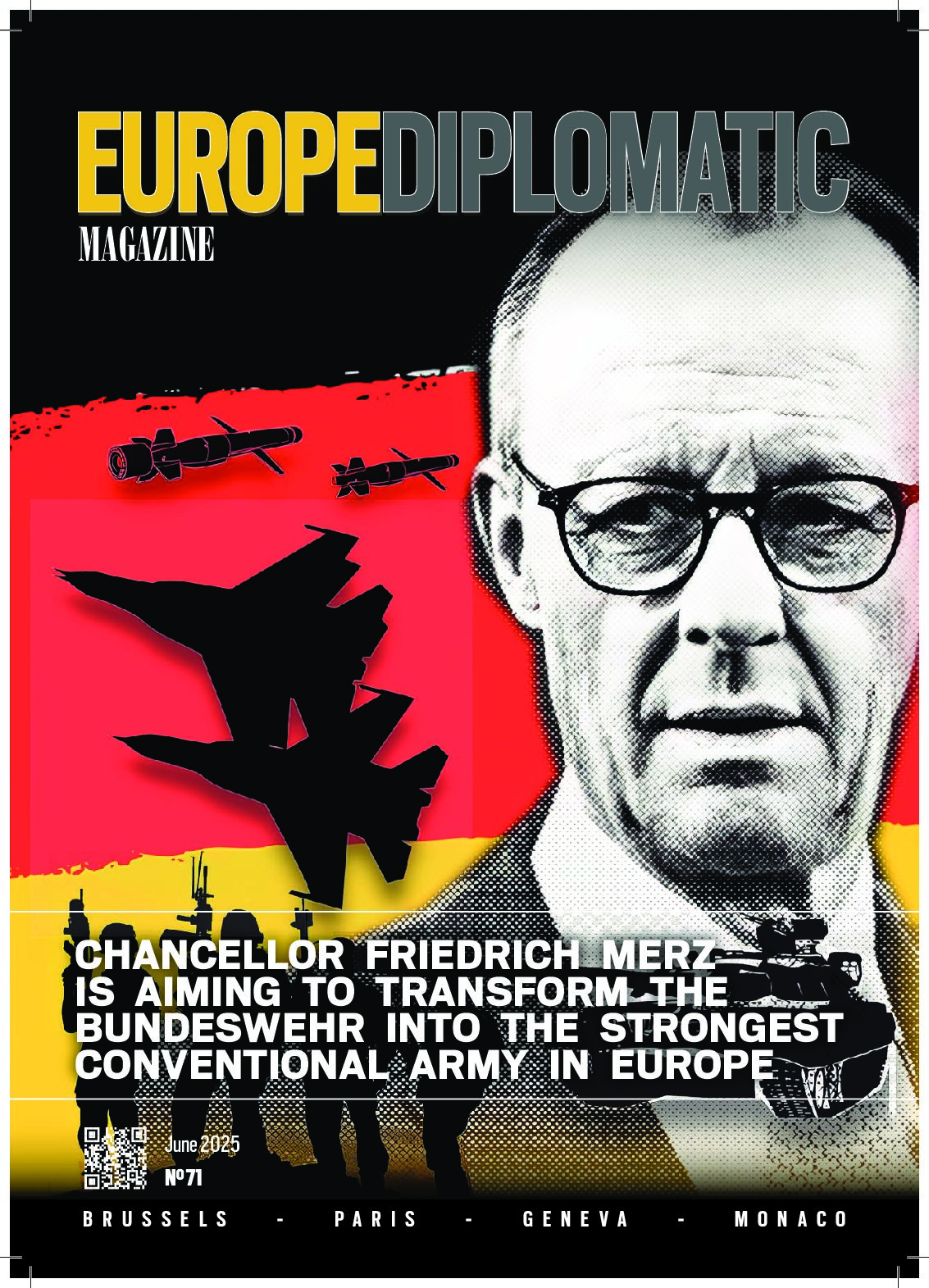 Milorad Dodik © Nrf Vladimir Putin
Milorad Dodik © Nrf Vladimir Putin
According to the late Sir Terry Pratchett, in his Discworld fantasy series, the number eight is lucky and slightly dangerous. The stories are set on a round, flat world, the Discworld, supported by four elephants who in turn stand on the shell of Great A’Tuin, the Sky Turtle, flying endlessly through space. Eight is the number of magic, Pratchett wrote (with his tongue in his cheek). It’s not always good magic: in his books wizards and witches can be evil as well as good. If you remember your childhood fairy tales, you’ll recall that some witches were good, some were wicked, providing enchanted spinning wheels as well as enchanting princes (and princesses). And we mustn’t forget goblins, ogres and other things that go “bump” in the night. It’s the same with wizards, fairies and pixies. However, in Chinese numerology, it seems, the number 8 predicts wealth and an abundance of good fortune. When the number 8 works its magic in your life you can expect to find that money flows easily towards you. How lovely; I wish it would for me! I had elderly relatives who were superstitious about numbers, although mainly it was the number 7, thought to be lucky because there are supposedly Seven Wonders in the world, Snow White, if you recall, met up with seven dwarfs, there are seven notes in a musical scale and there are supposedly seven deadly sins. Then, of course , there’s the number 13 (unlucky because, it seems, it was supposedly the number of diners at the Last Supper of Jesus). Unless you’re very superstitious, I can’t imagine numbers play a large part in your life.
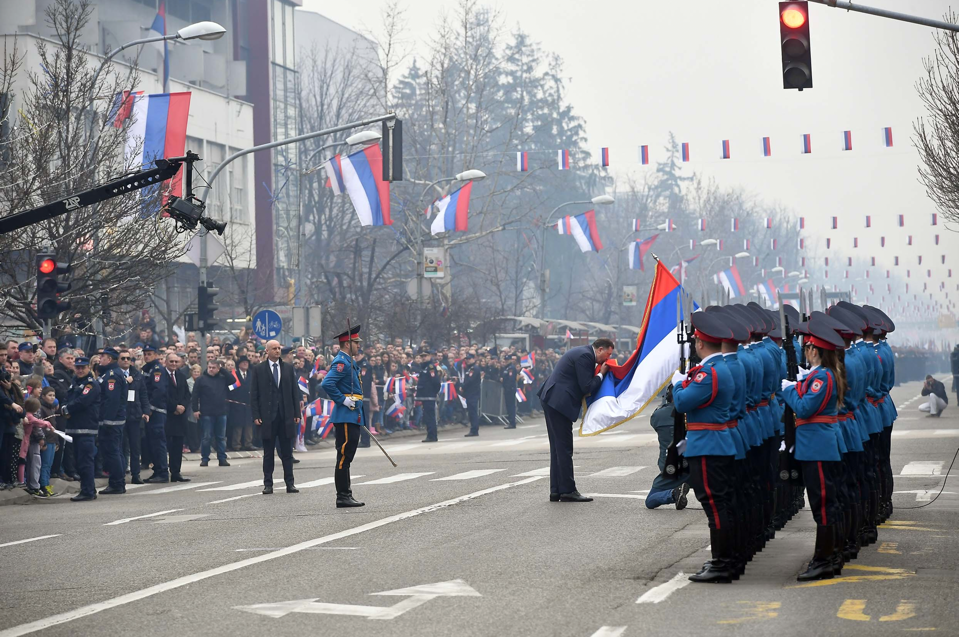
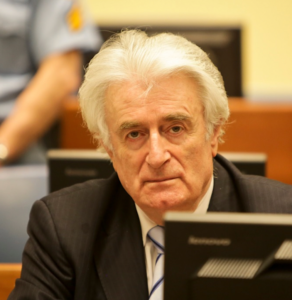
What do we know about Milorad Dodik and what does the number eight mean to him? Well, he was born in Banja Luka, Bosnia and Herzegovina, is married to Snježana Dodik, and was elected the eighth president of Republika Srpska in November 2022, after serving as the 7th Serb member of the Presidency of Bosnia and Herzegovina, effectively the federal head of state, from 2018 to 2022. Given that the job must sometimes seem to be something of a poisoned chalice. It’s puzzling that anyone wants it at all. Dodik was born in March 1959.
He studied political science at the University of Belgrade and from 1986 he was President of the City Council in his hometown, Laktaši, then, in 1990, he was elected to parliament in the first parliamentary elections in Bosnia and Herzegovina as a candidate of the Savez reformskih snaga Jugoslavije (SRSJ, Union of Reform Forces of Yugoslavia). Later on, he became a member of the parliament of the Republika Srpska, where he found himself in opposition to the ruling Serbian Democratic Party (SDS) of Radovan Karadžić.
Clearly not satisfied with the country’s political system, in 1996 he founded his own party, the Stranka nezavisnih socijaldemokrata (SNSD), the Party of Independent Social Democrats, which soon afterwards in 2002, merged with a smaller party to form the Savez nezavisnih socijaldemokrata (SNSD), Alliance of Independent Social Democrats. Dodik has been chairman of the SNSD consistently since 1996. That takes courage, especially in a volatile country such as his.
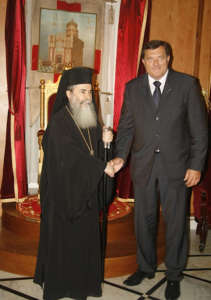
Dodik attracted particular attention with his positions on the 1995 Srebrenica massacre carried out by the army of
the Republika Srpska, in which thousands of adult and adolescent Muslims were murdered. In an interview for his Wikipedia entry on December 2, 2007, Dodik confirmed that there had been “a genocide” in Srebrenica:
“Well, I know exactly what happened. It was a genocide in Srebrenica. This was decided by the court in The Hague, which is an indisputable legal fact.”
In April 2010, in an interview with the Belgrade newspaper Novosti, he denied this genocide, as condemned by the UN and the EU, for example. He also claimed that the number of victims was 3,500 and not, as generally accepted, about 8,000. That makes it seem that the deaths of 3,500 people is a mere statistic and not important.
| NOT VERY SAINTLY?
We must bear in mind, however, that Dodik is inclined to set his sails to suit whichever wind will serve him best. This means whichever one will best serve his ambitions. He told the MSN news website, for instance: “I was elected president of Srpska for the third time at a very difficult time,” before affirming that he will seek cooperation with the European Union, as well as with Russia, China and the United States, although he stressed that he will not let his country be a member of NATO. He is clearly not just “cutting his coat according to the cloth”, as the old saying has it, but also seeing if he can squeeze an extra pair of trousers, a smart jacket and even a hat out of it, too, if he can. Some call that prudence, others have less complimentary words for it, although for those of a biblical turn of mind, it’s not really very different from what St. Paul supposedly wrote in his letter to the Corinthians: “For though I be free of all men, yet have I made myself servant unto all, that I might gain the more.” Paul’s letter goes on to explain his somewhat ruthless tactics. “And unto the Jews, I became as a Jew, that I might gain the Jews; to them that are under the law, as under the law, that I might gain them that are under the law.” And so he continues, explaining how he plans to win over other groups, advocating the sorts of methods familiar to and much used by extremists with a point of view to get across and by people trying to sell you double glazing. There are certainly people who use such tactics all the time, of course: politicians, few of whom we would call “saintly”.
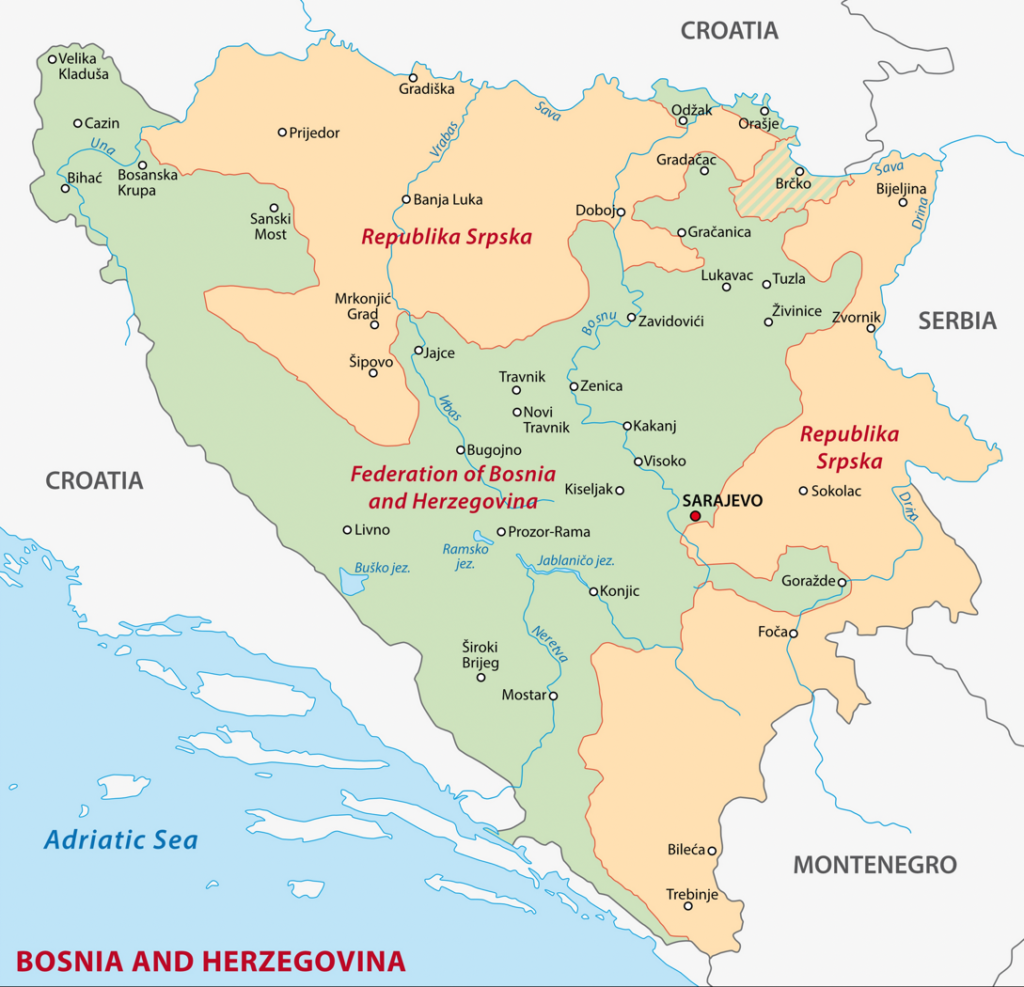
The Sarajevo Times reported on a press conference of Dodik’s in which he responded to one journalist’s question by saying: “The Reform Program was adopted, which foresees a certain form of cooperation with NATO. That’s fine, that’s not a big deal. What will not happen is NATO membership. We are not the ones who share programmatic values with other political parties.” But, of course, Dodik’s government is very new and untested, although he has held positions of power before, and not without controversy, for instance serving as prime minister of Republika Srpska, the Serb-majority entity of Bosnia and Herzegovina from 1998 to 2001, and then again from 2006 to 2010. He later became president of Republika Srpska itself from 2010 until 2018. Dodik has also been serving as the president of the Alliance of Independent Social Democrats (SNSD) since it was first created in 1996.
When he first came to power, Dodik was seen as a moderate thinker and a reformer, a long way politically from the ultra-nationalist Serb Democratic Party, but since those early hopeful signs, he and his SNSD party have drifted increasingly towards the ultra-nationalist and separatist camp, demanding the right of Bosnian Serbs to self-determination. They have also moved closer politically to Serbia and Russia, effectively, demanding the right to be on the political right, which is where he has remained, although he was popularly viewed around the world as a moderate. His recent statements suggest otherwise. As he was being sworn in as President of the part of Bosnia-Herzegovina that is under Serb control, he told his audience in Banja-Luka that he would continue to pursue “good ties with Russia, China and other like-minded countries”, which presumably means countries that do not permit a political opposition to exist and which take a very tough line with political opponents. During the inauguration ceremony Dodik said that Bosnian Serbs can now boast that: “We have our Serbia, our Russia and our (other) partners in Hungary, China.”
| WHOSE SIDE ARE YOU ON?
The elections themselves were extremely controversial, with the EU/US High Representative taking the very unusual step of demanding immediate changes to the manner in which the Croatian representative in the country’s tripartite presidency is elected. Populists immediately seized on this as an example of interference by the international community, which it undoubtedly is, however much most people might see it as necessary, although it drew criticism in Germany, too. However, the ultimate outcome was an electoral rebuke for the hardliners, however much external meddling was done. As for Dodik, he was initially thought to have suffered defeat amidst allegations of voter fraud and corruption, but he just managed to return to the presidency of Republika Srpska, scraping a narrow (and not uncontroversial) victory. He used his win as a platform from which to accuse Germany and the United Kingdom of working against the interests of Bosnian Serbs. Dodik has the support of the Kremlin; Putin appears to enjoy the unrest he causes, which distracts international attention from Russian brutality (and embarrassing setbacks and defeats) in Ukraine.
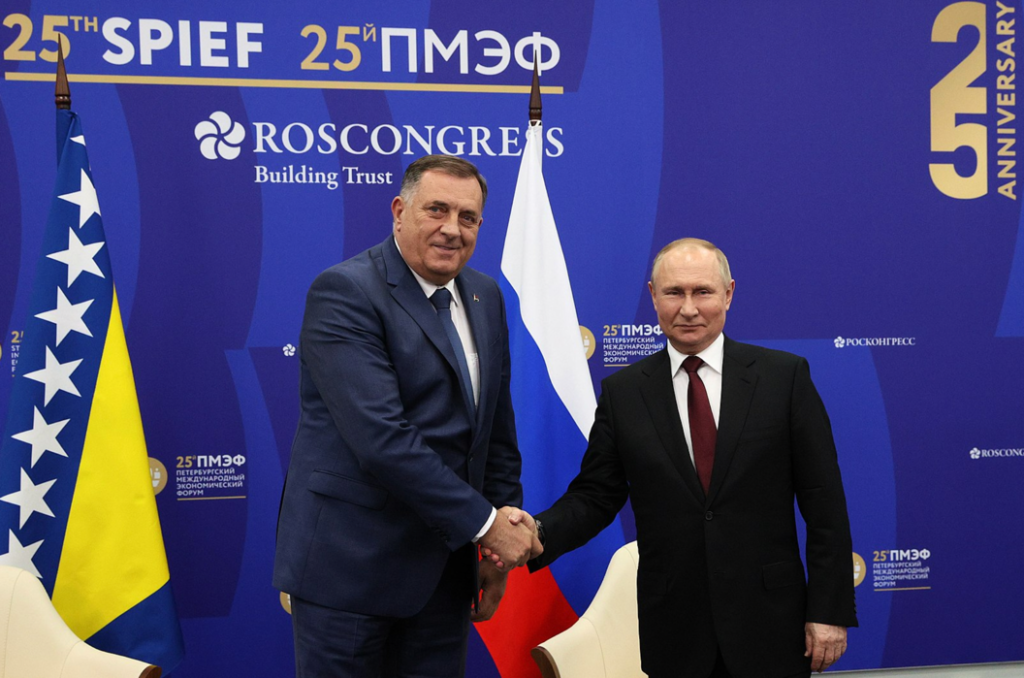
Dodik has said quite recently that violence is not the way to solve cross-border crises, according to the newspaper Balkan Insight. It seems unlikely, based on past evidence, that he really thinks this way. Dodik, in his role as the Serbian member of Bosnia and Herzegovina’s tripartite presidency, visited Turkish President Recep Tayyip Erdoğan in Ankara to discuss the region’s on-going problems. Dodik has said in the past that only Erdoğan can prevent a flare-up. Dodik had previously threatened to withdraw all Bosnian Serb officials from state-level institutions and recreate a full Bosnian army, which brings with it the fear of Bosnia collapsing and of inevitable armed conflict. Dodik did sound one conciliatory note, however, insisting that dialogue is needed on all open issues that involve Serbia, Croatia and Turkey. “The goodwill of [Serbian President Aleksandar] Vucic, Erdoğan and [Croatian President Zoran] Milanovic can be useful, but everyone else should agree on that,” Dodik said, adding that there is no alternative to peace and “the threat of force cannot solve any problem”. In the Balkans, talk of peace is vitally important, even if it’s only talk, a beautiful flower that never blooms.
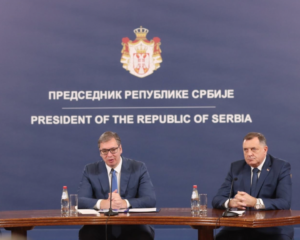
At the closed meeting, held in Turkey, Dodik and Erdoğan talked about bringing together the leaders of Bosnia, Serbia and Croatia, for a meeting that would get Serbia’s Vucic, Croatia’s Milanovic and the leaders of Bosnia’s main Bosniak, Croat and Serb parties, Bakir Izetbegovic, Dragan Covic and Dodik sitting around the same table. That would be quite an achievement. Dodik said before the meeting that he would like the opportunity to explain the situation to the Turkish president, complaining that the information Erdoğan had received so far had been “one-sided”. Dodik praised Erdoğan as “a man who is not prepared to do anything in Bosnia and Herzegovina that would be harmful for Serbs and Croats”. The leader of Bosnia’s main Bosniak party, the Democratic Action Party, SDA, agreed to the idea of talking things through, with Alija Izetbegović telling the N1 TV channel that Erdoğan could lead a mediation process, defining him as a genius. That may not be a view shared by everyone.
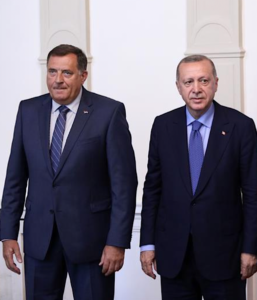
It would not be correct to imagine constant conversation and negotiation, or, indeed, the basic notion of fair play. I think that occasional house parties with the neighbours would have been unlikely, too. Think of it more like constant bickering with occasional threats and menaces. I’m afraid the Balkans has always been like that. If you want peace, harmony and fair play, you should go elsewhere. The region’s fragmented identity owes much to the turbulent years of Ottoman conquest as well as to its mountainous terrain, that keeps closely neighbouring districts and towns apart. In this case, geography plays a very large part in history. If you look up the names of the many different tribes inhabiting the area during what the rest of Europe called ‘the Dark Ages’, you’re in for a long read. They are listed, broken down into different ethnic categories, with names like the Agrianes, the Coelaletae, the Sycaeboae, the Coertoboci and also the Koistobokoi and Koistobokoi Montanoi. There are many, many more: a bewildering variety of ethnic variations. The fact that they seemed to spend so much of their time fighting each other really isn’t surprising. Today’s occasional flare-ups among Bosnians, Bosniaks and Herzegovinans, Serbs and so on are hardly surprising. It’s like whose “gang” you were in at school (often dictated by your parents’ address or what football team you (or your farther) supported) really becoming a matter of life or death, with quite a lot of violence in the process. It’s no surprise that there have been (and still are) so many ethnic divisions in the Balkans and that the people living there seem not to like each other much. The surprise would be if they all lived peacefully side-by-side. It reminds me of the song performed by the satirical songwriter and performer, Tom Lehrer, back in the 1950s and 60s. His song “National Brotherhood Week” neatly sums up how it’s almost always much easier to hate each other than it is to develop any sort of affection for each other.
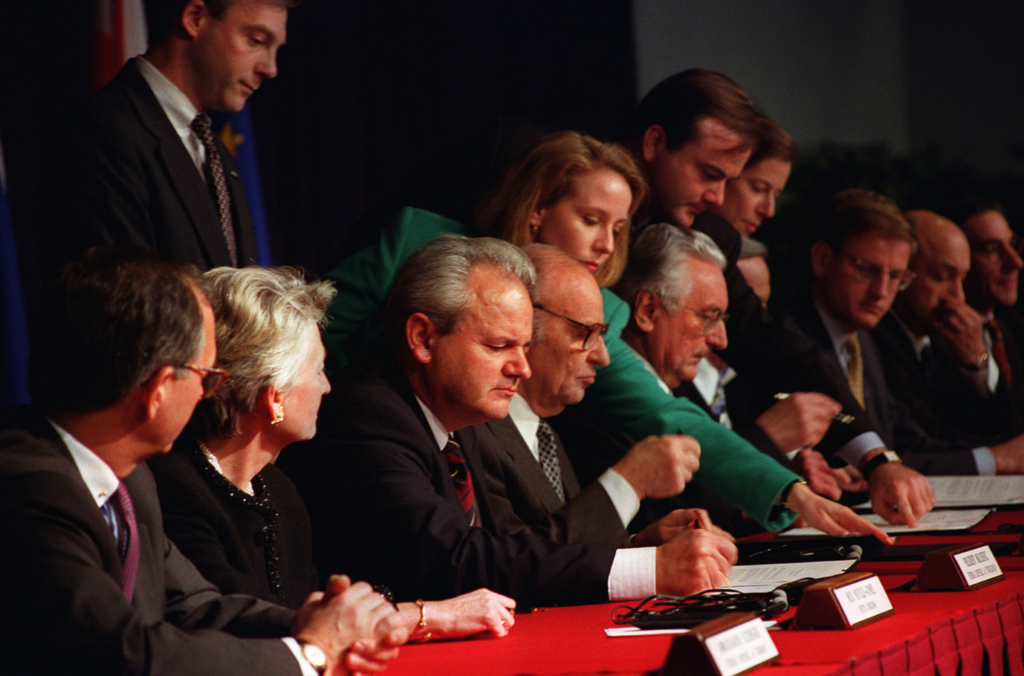
| INVADING VENUS, ANYONE?
Indeed, the Balkans have few happy memories to look back on. Take Albania, for instance – which is something Benito Mussolini tried to do, of course. Albania’s first ruler, the wonderfully-named King Zog was overthrown by Mussolini when he invaded the country in 1939. Then Adolf Hitler came along, using Albania as a kind of jumping-off point from which to launch his invasion of Greece. Hergé, the cartoonist who created Tintin, based the figure on his elder brother, the physical resemblance being so strong that the brother in question suffered bullying when he joined the army. No prizes for guessing the poor man’s nick-name. Tintin had a dog, too, called Toto. My childhood cartoon hero, in the boys’ comic ‘The Eagle’, had weird eyebrows, so nobody could actually closely resemble him. He was called Dan Dare. I don’t think he ever visited the Balkans, either, but his arch enemy, the evil small green homunculus called the Mekon, riding on a floating platform, would have been very easy to spot. The Mekon certainly didn’t resemble Dodik, either, while Dan Dare’s best friend and companion was a working-class chap from Lancashire, called Digby, plump and often humorous but courageous.
But this doesn’t bring us any nearer to life in the Balkans and its series of leaders of varying kind, such as Enver Hoxha, an Albanian Communist who ruled Albania in an authoritarian manner from 1944 until his death in 1985. His statue was pulled down, the head cut off and then urinated on by demonstrators, who appear not to have liked him much. He had not been a popular leader, clearly. The poison that permeates Balkan politics keeps being recirculated, largely because of a perceived lack of justice under successive leaders down the many years. It’s been almost three decades since the Dayton peace agreement was reached in November 1995 by Bosnia, Croatia, and Serbia, ending the war that broke out in former Yugoslavia in the early 1990s.
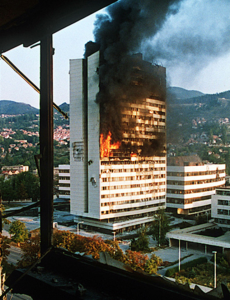
There is little point in referring to any particular decade in particular as having been overshadowed by evil and wickedness. They all were. And in many ways, history is constantly repeating itself, and for much the same reasons as before. Certainly, Albanians suffered in the Second World War, a fact conceded by Hoxha: “The sacrifices of our people were very great,” he said at a public meeting at the end of the War. “Out of a population of one million, 28,000 were killed, 12,600 wounded, 10,000 were made political prisoners in Italy and Germany, and 35,000 made to do forced labour; of the 2,500 towns and villages of Albania, 850 were ruined or razed to the ground; all the communications, all the ports, mines and electric power installations were destroyed, our agriculture and livestock were plundered, and our entire national economy was wrecked.” Not that Hoxha had much to be proud of either, looking back at his isolationist reign. By the time he died in 1985, Albania was officially the third poorest country in the world, with a GNP of €14.48 per month. The country was starving, largely because forty years of collectivism had failed, while isolationism meant that farmers were still using technology from the 1920s. So, while Hoxha was bemoaning the sorry state of his country, Albania, and his people’s extreme poverty and hunger, he was the man who’d caused it. Even the Mekon might have laughed.

It was Britain’s wartime leader Sir Winston Churchill who spoke about the tendency of Balkan affairs to spill over into neighbouring countries. He said that they: “produce more history than they can consume.” There is a distinct tendency for their troubles to get spread around. It was Otto von Bismarck who said: “If ever there is another war in Europe, it will come out of some damn silly thing in the Balkans.” What’s more, of course, the very word ‘Balkanization” means to break up a country into ever smaller and very often mutually hostile units. In fact, the official definition is to break a country up into: “ethnically homogeneous parts,” but as we’ve seen, they’re very often not. Dodik, too, is a prickly individual, always ready to take offence. He recently accused US President Joe Biden of trying to humiliate him and his country by sending a greeting to him to mark Statehood Day, which is not celebrated in Republika Srpska. Or it could simply have been that Biden didn’t realise that Statehood Day isn’t recognised there. It doesn’t sound like much of a provocation; I mean, you wouldn’t hit somebody for wishing you a happy birthday when it wasn’t your birthday. Like I said, even the mildest incident can quickly turn nasty in the Balkans. As it turned out, Dodik argued that only the Muslim populations of Bosnia and Herzegovina celebrate Statehood Day, which in his view made Biden’s greeting a deliberate provocation, intended to humiliate Dodik’s people. It really does get that silly there.
| WHAT A STATE FOR STATEHOOD TO BE IN
Several countries celebrate Statehood Day in one way or another. In Slovenia it’s the 25 June, in Bosnia and Herzegovina it’s the 25 November, while Croatia celebrates on the 30 May. Serbia marks the occasion on 15 February, to celebrate the uprising of 1804 when the people threw off rule by the Ottomans. Statehood day – the actual day varying from country to country – is not to be confused with Independence Day, which is most often celebrated on a different day and for a different reason.
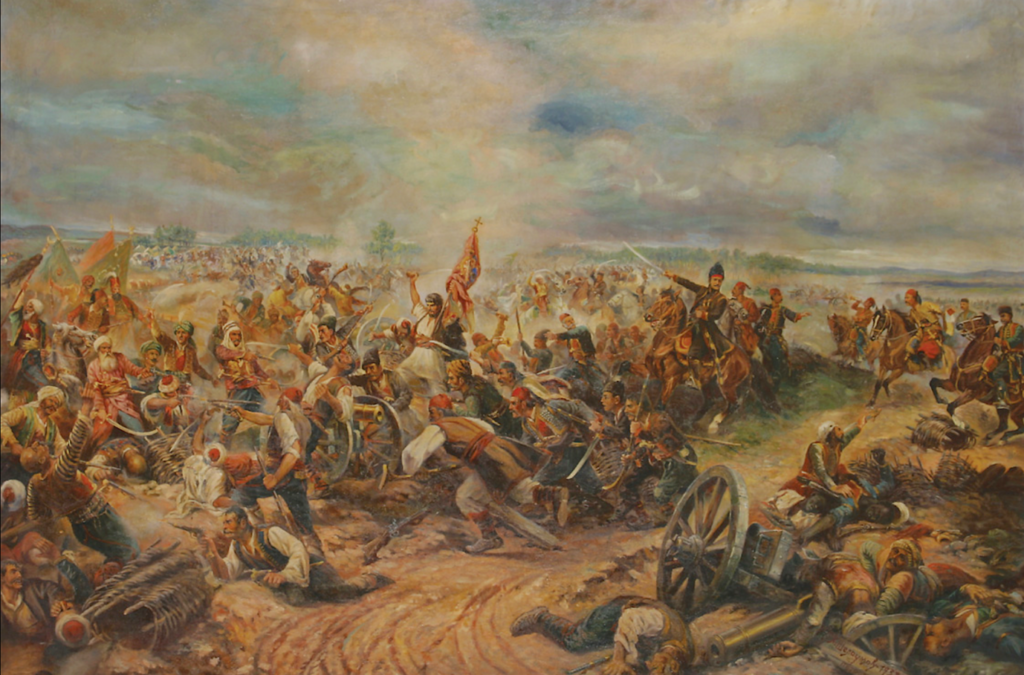
For Montenegro, for instance, Statehood Day is on the 13 July and celebrates the country’s recognition as a state by the Berlin Congress in 1878, while Independence Day, on 25 May, commemorates the date of the referendum that established actual statehood in 2006. Political history is a complicated subject, and one country’s special day of proud celebration probably won’t be the same as that of the country next door. But while Dodik feels insulted by President Biden, we may console ourselves with the thought that his annoyance may have more to do with the sanctions the US has imposed on him, on a television station under his control and on a couple of his officials for alleged corruption and what Washington calls “destabilising activities”. The sanctions, including asset freezes and visa bans, are rooted in Dodik’s threat to withdraw Serbians from the Bosnian national army and other institutions, while seeking to destroy the Dayton peace accord. Dodik clearly isn’t going to be seen as “flavour of the month” in the White House. He’s seen instead as a troublemaker who loves to cause trouble.
What’s more, Dodik is regarded as the most pro-Putin leader in the region. He’s also an ultra-nationalist, it seems, keen to extract his Republika Srpska from the rest of Bosnia. Dodik has been manoeuvring to secure enhanced rights for the region he calls home and stirring up moves towards ultimate secession. He led his supporters in street demonstrations to mark a banned public holiday to mark the creation of a separate Serbian parastate. His supporters sang nationalist and Islamophobic songs whilst carrying the Serbian flag alongside banners supportive of Ratko Mladic, the Bosnian general accused of genocide. The EU condemned the event and threatened to consider imposing sanctions unless things improve. The problem is a lack of unity on the EU’s part, with Hungary supporting the separatists.
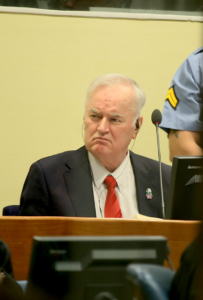
According to the highly informative Politico website, there is quite a lot to worry about. It quotes Florian Bieber, a professor of southeast European politics at the University of Graz. “The big problem is that Bosnia’s international observers have a very short attention span,” he said. “When there’s a crisis, they see it as a window of opportunity for something to get done. And to get it done as fast as possible, they bypass all the institutions and talk to the ethnic leaders outside the institutional framework.” As it is, Dodik has made moves towards an independence referendum before, even though it would have been illegal under the Dayton Accords. Dodik has plenty of supporters, too, among the country’s nationalists, with 99.8% of voters supporting a proposal to create a Day of Republika Srpska, as if it needs one. The EU too often takes its eye off the ball and right now the outcome could prove deadly. Bieber said that it’s like having pyromaniacs as firefighters.
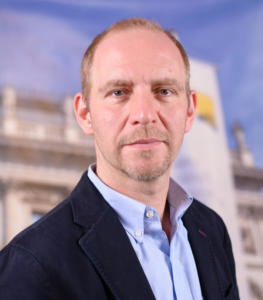
Bieber doesn’t accept the EU’s excuse for inaction, that the system is “too complicated”. He points out that it has been like this for some 26 years, largely with the same politicians involved. The Dayton Accords brought to an end some three-and-a-half years of war and set up a single sovereign state known as Bosnia and Herzegovina which had two parts: the Serb dominated Republika Srpska and the mainly Croat and Bosniak populated Federation of Bosnia and Herzegovina. With the benefit of hindsight, it’s easy to see this was unlikely to last, although it did end the fighting at the time. Then a law was passed in 2021 making it illegal to deny genocide, which Dodik and his supporters constantly do. Perhaps not surprisingly, Dodik himself has the support of Hungary’s far-right prime minister, Viktor Orbán, a man who seems to enjoy juggling lit matches in a firework factory.
Can the Balkans scrape through a few more years (or even months) without yet another armed conflict ruining their lives? It’s what most people want, but they may not get to choose. Whatever peace moves may be progressing, Dodik and his pals, Orbán and Vladimir Putin, may well be examining what possible advantages may be offered by killing a few more people and scarring the landscape with ordnance. It seems certain that whatever Dodik does or says, and whomsoever he may talk to, peace certainly isn’t his long-term goal. There must be a solution to this mess, but so far nobody has found it.
